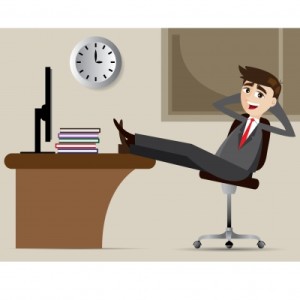It’s human nature to be on our best behaviour when we’re new to something or we’re trying to impress someone. When we start a new job for example, we’ll go out of our way to be on time, stay a bit late, work extra hard, be particularly friendly to colleagues and refrain from sending personal emails during working hours.
Believe it or not however, our best behaviour only lasts a mere six weeks after starting a new job. Research carried out by Reed has found that despite our best intentions, once we’re settled into a role the temptation to kill time gets the better of us and we start getting distracted.
The average worker admits to spending 33 minutes every day on non-work related tasks. Personal emails was cited as the top ‘desktop distraction’ with 30% of us saying we do this and this is closely followed by checking social media and replying to text and WhatsApp messages.
As if this wasn’t bad enough, a super confident 19% of us (one in five) won’t hesitate to take an extra-long lunch break in order to catch up with friends.
All these ‘me-related’ tasks are a big contrast to the huge effort we go to in order to make a good first impression. The same survey found that almost two thirds of women (61%) will bake cakes for colleagues and 67% of men buy workmates a drink at lunch or after work in a bid to fit in.
Additionally to this, almost a quarter of us get to work early to impress the boss and one in six will only check our phones during break times so we’re not seen as slacking off.
Interestingly, the amount of time we feel we need to keep up appearances and make a good impression for dramatically differs from industry to industry. Over half (58%) of engineering employees say they stay on their best behaviour for at least a year whereas over a fifth (23%) of accountancy professionals admit to succumbing to me-related tasks after just 22 to 30 days.
How long do you stay on your best behaviour for when you start a new job? Do you think it varies from profession to profession or is it more of a personality trait that leads us to get distracted quicker? Feel free to share your thoughts with us below.






Join us on LinkedIn Follow us on Twitter
Follow us on Twitter 